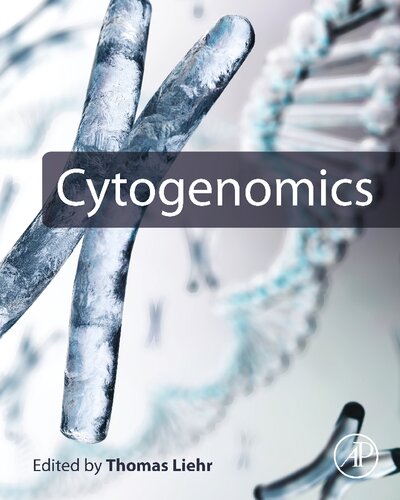

Most ebook files are in PDF format, so you can easily read them using various software such as Foxit Reader or directly on the Google Chrome browser.
Some ebook files are released by publishers in other formats such as .awz, .mobi, .epub, .fb2, etc. You may need to install specific software to read these formats on mobile/PC, such as Calibre.
Please read the tutorial at this link: https://ebookbell.com/faq
We offer FREE conversion to the popular formats you request; however, this may take some time. Therefore, right after payment, please email us, and we will try to provide the service as quickly as possible.
For some exceptional file formats or broken links (if any), please refrain from opening any disputes. Instead, email us first, and we will try to assist within a maximum of 6 hours.
EbookBell Team

4.0
36 reviewsCytogenomics demonstrates that chromosomes are crucial in understanding the human genome and that new high-throughput approaches are central to advancing cytogenetics in the 21st century. After an introduction to (molecular) cytogenetics, being the basic of all cytogenomic research, this book highlights the strengths and newfound advantages of cytogenomic research methods and technologies, enabling researchers to jump-start their own projects and more effectively gather and interpret chromosomal data. Methods discussed include banding and molecular cytogenetics, molecular combing, molecular karyotyping, next-generation sequencing, epigenetic study approaches, optical mapping/karyomapping, and CRISPR-cas9 applications for cytogenomics. The book’s second half demonstrates recent applications of cytogenomic techniques, such as characterizing 3D chromosome structure across different tissue types and insights into multilayer organization of chromosomes, role of repetitive elements and noncoding RNAs in human genome, studies in topologically associated domains, interchromosomal interactions, and chromoanagenesis.
This book is an important reference source for researchers, students, basic and translational scientists, and clinicians in the areas of human genetics, genomics, reproductive medicine, gynecology, obstetrics, internal medicine, oncology, bioinformatics, medical genetics, and prenatal testing, as well as genetic counselors, clinical laboratory geneticists, bioethicists, and fertility specialists.